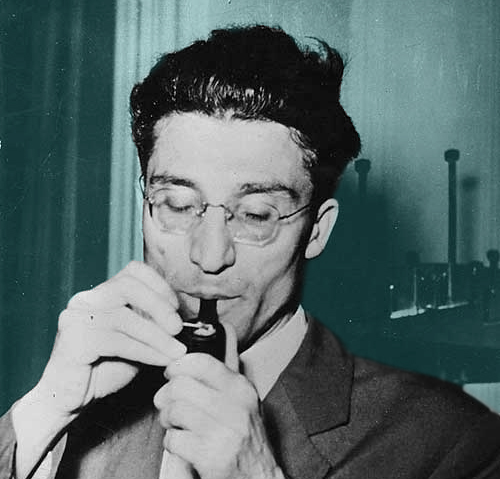
Sculpture and ceramicist Mario Sturani was, by all accounts, Cesare Pavese‘s most cherished friend. The two met as students, and maintained a frank, intimate and wide-ranging correspondence long thereafter. Below, Pavese writes to Sturani of his terrible, lifelong depression, and his transmutation of that depression, with the help of Sturani, into “constructive pain.” “It is a battle I have to fight every day, every hour, against inertia, dejection and fear,” confides Pavese, “a conflict of opposing ideas that should, I think, refine and temper my spirit as metal is smelted and hardened by fire.”
TO MARIO STURANI
November 23, 1925, Turin
Dear Sturani,
Each of us is fully intent on himself, and that’s quite natural. As I write to you my teeth are clenched because I am more and more convinced that your genius is a strong conscious unity, wholly devoted to its ideal, while I’m only a poor little versifier afraid to open his eyes wide in bright sunshine lest the light should hurt him. Yet I hope that you, and all those who do something out of the ordinary, may to some extent share my endless uncertainty. But, I assure you, my trouble is no longer the depression I used to feel at school: it is a battle I have to fight every day, every hour, against inertia, dejection and fear; a conflict of opposing ideas that should, I think, refine and temper my spirit as metal is smelted and hardened by fire.
This struggle, this pain that I find so harrowing yet so very sweet, keeps me on my toes, always ready and eager, and is, in short, what drags my works from my spirit.
It seems to me I have already done a good deal and shall, I hope, do much more.
Well now, you can claim to be the main cause of this transformation of mine from schoolboy depression to constructive pain. If ever I complete a great work, I shan’t forget that your strength has been a great stimulus.
‘It’s been a pleasure’, you’ll say, but bear in mind that however wretched I may feel, I am a proud man and glad to be so; remember that nothing thrills me more than thinking of the splendid isolation all men of genius know. I tell you now that, notwithstanding my love of working alone, I bow my head before you and acknowledge you have been my master. I should shout for joy if you were to write the same about me.
Leaving aside compliments, conventions and all the sugary things one says to friends, in all frankness I tell you that in my opinion you have powerful talents. I have thought so for three years. But don’t believe I write this so that you should say the same about me. No, treat me as severely as you can. That will give me an incentive.
C. Pavese
+


